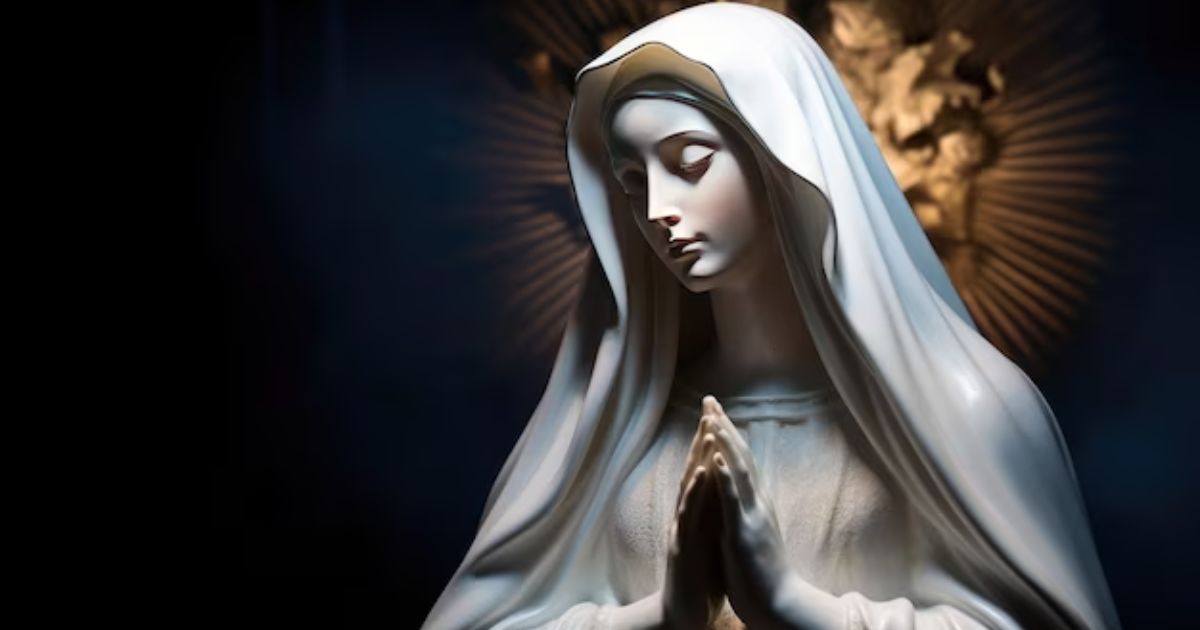Introduction: Navigating the Spiritual Landscape of Divine Representation
Throughout human history, religious traditions have grappled with the profound and complex question of divine representation. While many cultures embrace female deities as fundamental to their spiritual understanding, Christianity presents a unique theological perspective that challenges conventional notions of divine gender. The concept of a “Mother God” in Christianity is a nuanced and often misunderstood theological exploration that demands careful examination and thoughtful analysis.
Scholars like Elizabeth Schüssler Fiorenza, in her seminal work “In Memory of Her” (Crossroad, 1983), have extensively researched the complex dynamics of gender in biblical interpretation. Modern believers find themselves at an intricate crossroads of spiritual interpretation, where ancient texts, cultural traditions, and contemporary theological discourse intersect.
Understanding the Mother God Concept in Christianity: A Theological Framework
Christianity fundamentally stands as a monotheistic religion, centered on the triune God – God the Father, the Son (Jesus Christ), and the Holy Spirit. Unlike many pagan religions that feature multiple deities with distinct gender representations, Christian theology emphasizes a unified divine essence that transcends human conceptualizations of gender.
The renowned theologian Karl Barth, in his “Church Dogmatics” (T&T Clark, 1936), argues that divine nature cannot be confined to human understanding of gender. The absence of a literal “Mother God” in Christian doctrine doesn’t diminish the profound respect and reverence for feminine aspects of divine wisdom and spiritual nurturing.
- More post :The Spiritual Symbolism of Lavender in the Bible: A Sacred Journey Through Ancient Wisdom
Historical and Scriptural Context of Divine Representation
Ancient religious practices often included prominent female deities associated with fertility, wisdom, and natural cycles. Biblical scholar Walter Brueggemann, in “Theology of the Old Testament” (Fortress Press, 1997), provides extensive context about how biblical texts consistently emphasize the unique, singular nature of God, rejecting polytheistic interpretations that might suggest multiple divine entities.
Exploring Biblical References: Challenging Misconceptions
Asherah and Yahweh: A Historical Theological Examination
The mention of Asherah in historical contexts represents a critical point of theological discussion. Biblical archaeologist Phyllis Bird’s research in the Harvard Theological Review demonstrates that while some ancient Israelites engaged with Canaanite religious practices, the Mosaic Law explicitly condemned the worship of Asherah.
Archaeological evidence from sites like Kuntillet Ajrud reveals complex religious syncretism in ancient Israelite culture. However, biblical texts consistently reinforce the principle of exclusive devotion to Yahweh, rejecting syncretistic worship practices.
Sophia: Wisdom’s Symbolic Personification in Proverbs
Proverbs 8 presents wisdom personified as a female figure, which some interpret as evidence of a divine feminine presence. Biblical scholar Roland E. Murphy, in his commentary on Proverbs (Anchor Bible, 1998), emphasizes this as a poetic literary device, not a literal representation of a female deity.
The personification of wisdom serves a rhetorical purpose, illustrating divine attributes through symbolic language. This interpretation is supported by comparative studies of ancient Near Eastern literary traditions.
Theological Perspectives on Divine Femininity
The Heavenly Mother Concept: Critical Analysis
Some religious groups interpret Galatians 4:26 and references to the New Jerusalem as suggesting a heavenly mother. Theologian Judith Gundry Volf, in her work on ecclesiastical imagery, provides nuanced insights into these metaphorical interpretations.
Mainstream Christian theology views these passages metaphorically, representing the church’s spiritual relationship with divine principles. The “Bride of Christ” analogy represents a profound spiritual connection rather than a literal familial divine relationship.
Mary: Beyond the Queen of Heaven Misconception
Catholic theologian Hans Urs von Balthasar’s extensive writings on Mariology provide a sophisticated understanding of Mary’s role. While Catholic traditions honor Mary with significant reverence, biblical texts clearly demonstrate her human nature. In Luke 1:47, Mary herself acknowledges her need for salvation, explicitly rejecting any notion of divine status.
Comparative Religious Perspectives
Female Deities in Global Religious Traditions
Comparative religious scholars like Mircea Eliade have extensively documented female deities across global religious traditions. Pagan religions worldwide feature rich traditions of female deities, representing fertility, wisdom, and natural forces.
Christianity’s monotheistic approach offers a distinct contrast, emphasizing spiritual relationship over gendered divine representation. The biblical perspective on other gods isn’t a denial of their cultural existence but a profound statement about the nature of true divinity.
Why Understanding Matters: Theological Implications
Comprehending the nuanced theological landscape surrounding divine representation prevents potential misconceptions and promotes deeper spiritual understanding. By critically examining scriptural texts, believers can develop a more sophisticated appreciation of divine mysteries.
Conclusion: Embracing Theological Complexity
The exploration of the “Mother God” concept reveals the rich, complex nature of theological understanding. Christianity invites believers to embrace a profound, multifaceted spiritual perspective that goes beyond literal interpretations.
As we continue our spiritual journeys, we’re called to approach divine mysteries with humility, intellectual curiosity, and an open heart. The true essence of spiritual wisdom lies not in rigid categorizations but in understanding the transformative power of faith.

Admin at UrbanSinfinity.com, passionate about sharing inspiring Bible Quotes and spiritual insights to uplift and strengthen faith. Dedicated to spreading wisdom from Scripture for daily encouragement and growth.
